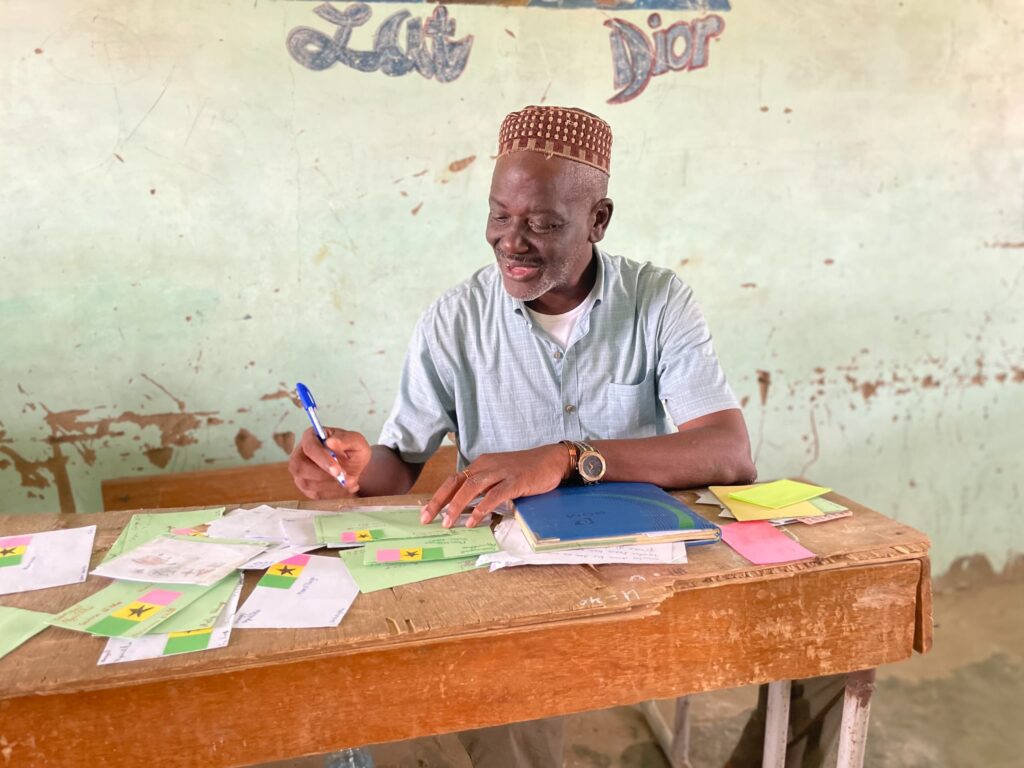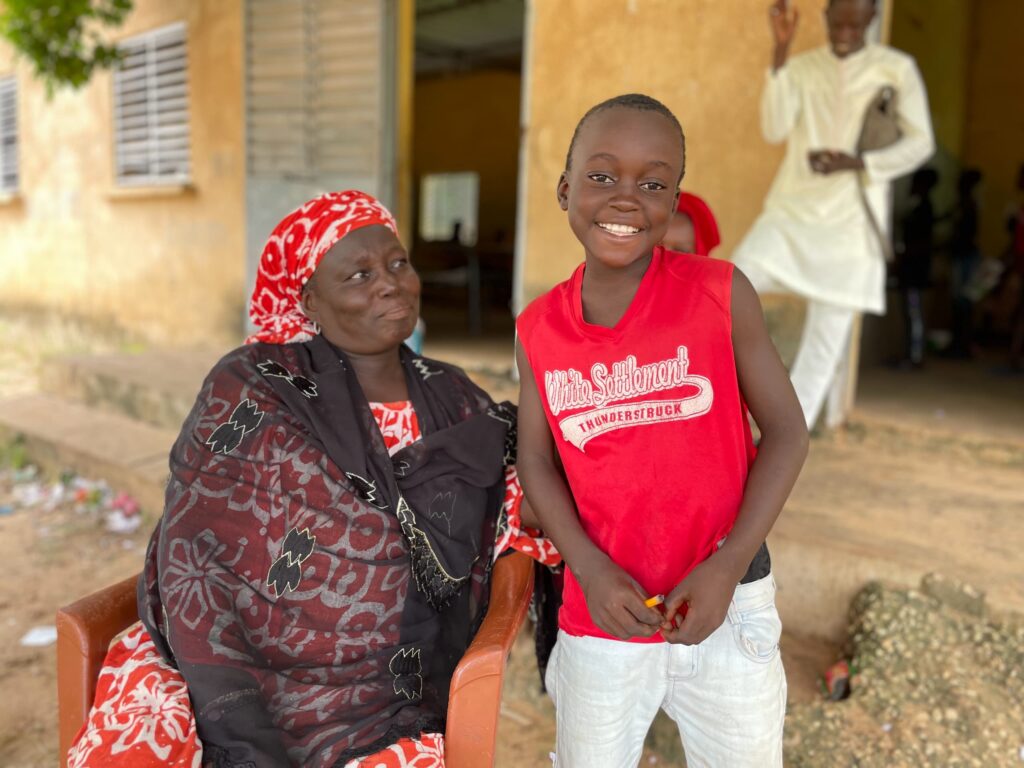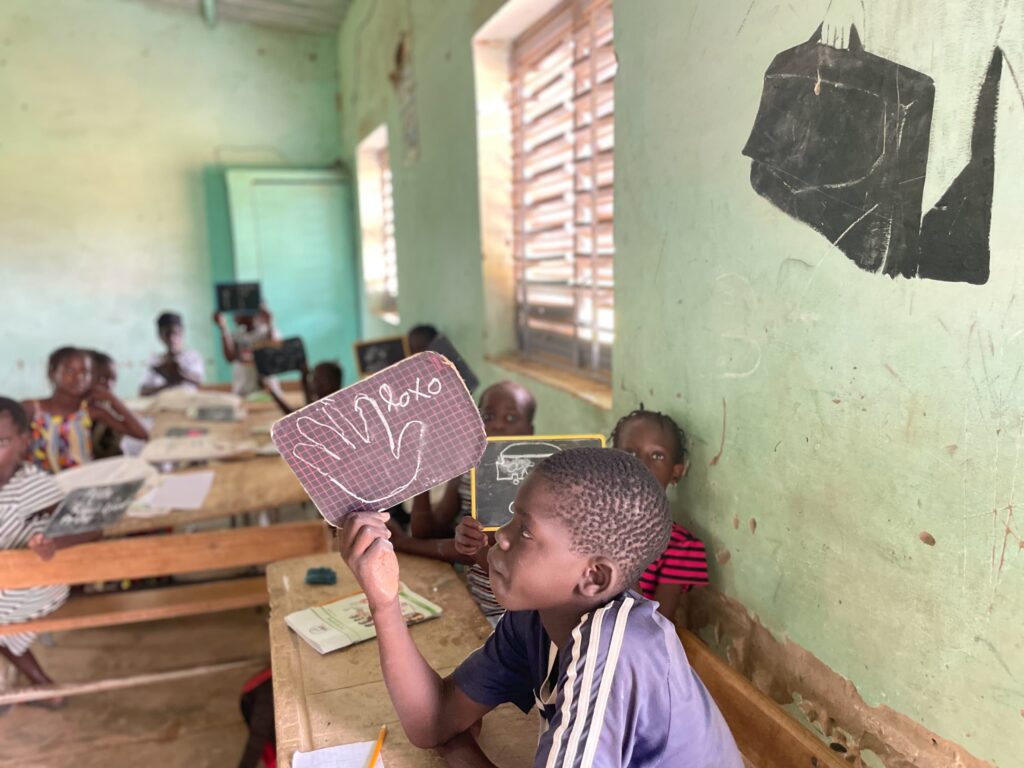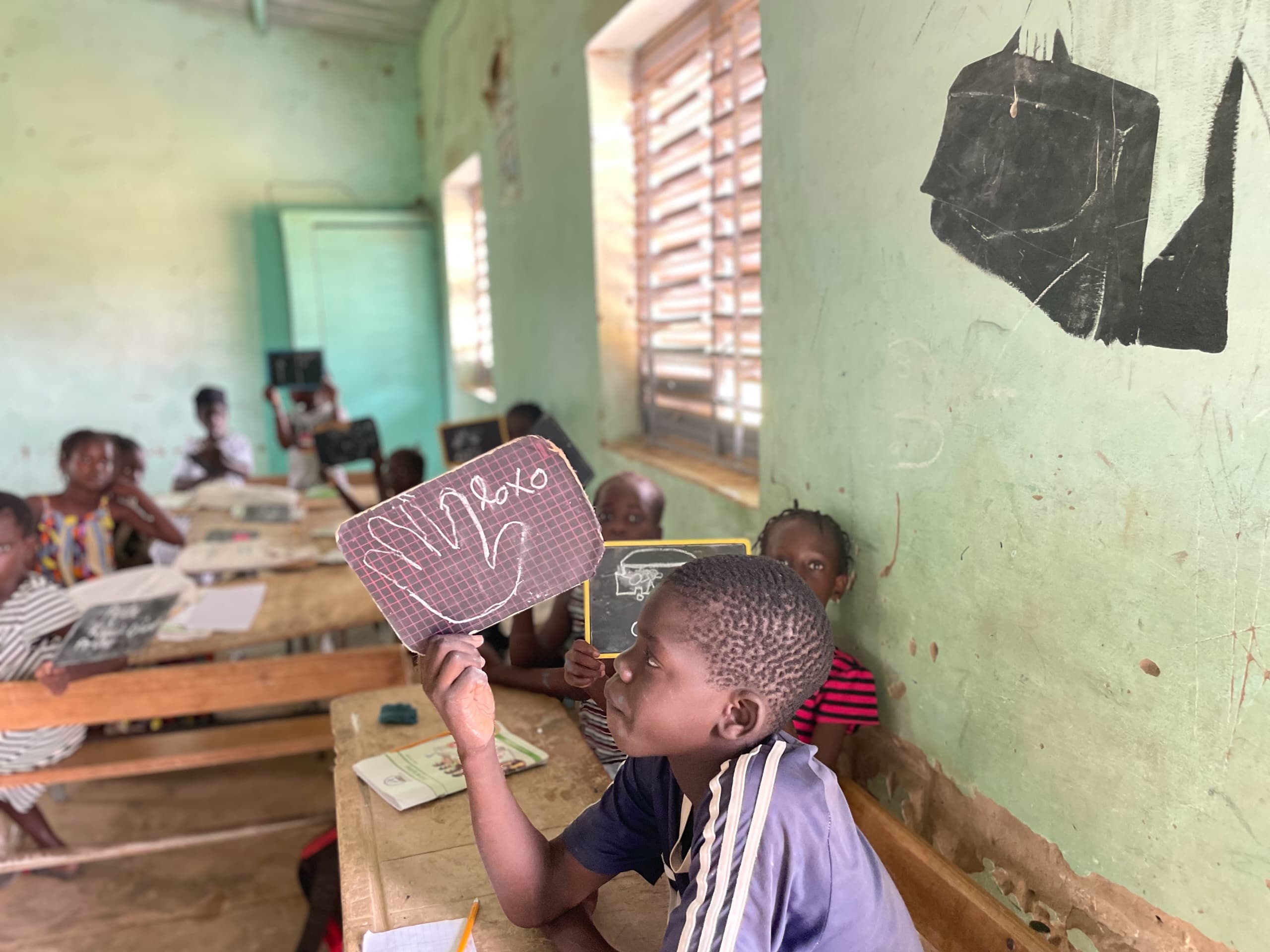The program Ndaw Wune (Success for all)developed by the NGO ARED (Associates for Research in Education and Development). It is a remedial education initiative aimed at children in CP and CE1 classes who are experiencing difficulties at school. This innovative program uses adapted pedagogical approaches, small class sizes, level groups and national languages. This enables children to acquire essential reading and math skills, catching up with their peers.
An Adapted and Inclusive Pedagogical Approach
Designed to meet the specific needs of young learners, the Ndaw Wune program emphasizes teaching adapted to students' learning levels. Classes have 20 students, divided into level groups, enabling effective, personalized teaching. Classes are held three times a week, during which students work with workbooks in reading, writing and math, designed to encourage independent work. Each group receives targeted instruction in reading and math once a week, under the supervision of their teacher. While one group is instructed directly by the teacher, the other two groups continue their exercises independently. This rotation ensures that every minute of teaching time is used effectively, and encourages the development of independent work habits.

Working with communities and parents
The Ndaw Wune program actively involves local communities in the educational process. Student recruitment is coordinated with school administrators and parents. Before classes start, a simple pre-test is administered to assess the children's learning needs and assign them to the appropriate level groups. This community involvement is helping to meet growing demand, with parents expressing interest in extending the program and school principals proposing wider access to reach more students.

A Timetable Adapted to Local Contexts
To respect local realities, Ndaw Wune schedules are adjusted according to community activities. During the summer program, classes are organized to avoid market days and to fit in with families' economic and domestic obligations, including children's participation in family chores. During the school year, classes are held three afternoons a week, on days when Senegalese schools are closed.
Promising results
The initial results of the Ndaw Wune program are very encouraging. The larger-scale pilot phase, carried out in the summer of 2022, has demonstrated significant progress in students' reading and mathematical skills in all the regions involved. This success confirms the positive impact of ARED's approach, which emphasizes learning tailored to each child's needs, rather than one-size-fits-all teaching.

Cloture des classes Ndaw Wune Vacances
After eight weeks of intensive catch-up, ARED finally celebrates the closing of this 2024 edition of the program Ndaw Wune Vacances ! A huge thank you to all the town councils, communities, parents, tutors and partners for their support in this educational mission. Together, we are building a future where every child has an equal opportunity to succeed.
Finally, we are pleased to announce that the Ndaw Wune School Year will officially begin at the beginning of December 2024, enabling even more children to benefit from structured educational support throughout the school year.

